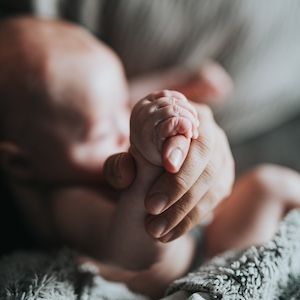News
Article
Bevacizumab Biosimilar May Be Viable Option for Retinopathy of Prematurity
Author(s):
BIOS-ROP study results indicate the bevacizumab biosimilar monotherapy leads to complete ROP regression in almost two-third of the eyes after 24 weeks of treatment.
Credit: Nathan Dumlao/Unsplash

A new study provided insight into the capability and role of a bevacizumab biosimilar product (Bevatas) for the management of type 1 retinopathy of prematurity (ROP) and aggressive posterior retinopathy of prematurity (APROP).1
Results from the retrospective, interventional BIOS-ROP study in India revealed that the intravitreal bevacizumab biosimilar monotherapy provided significant benefit for eyes with type 1 ROP but demonstrated a lack of substantial benefit for the APROP eyes, over 24 weeks.
“These findings highlight the potential of the bevacizumab biosimilar as a promising treatment option for ROP, particularly for type 1 ROP eyes,” wrote the investigative team. “However, it is important to note that additional laser treatment was needed for a substantial number of APROP eyes, indicating that further research is needed to optimize the treatment approach for this particular subgroup of patients.”
One of the leading causes of childhood blindness, ROP remains a significant concern for the visual development and quality of life of premature infants globally.2 Anti-vascular endothelial growth factor (VEGF) agents, like bevacizumab, have shown significant effects in treating retinal diseases in adults. Evidence has linked off-label use in infants with ROP to structural and functional improvements in the retina.
Biosimilar products similar to the reference biologic are thought to revolutionize retinal disease management, providing access to first-line therapeutics and reducing the associated economic burden. A team of investigators, led by Somnath Chakraborty, of the department of vitreoretinal services at the Retina Institute of Bengal, assessed the potential of a bevacizumab biosimilar in revolutionizing ROP management, as well as its regulatory and real-world effectiveness.1
The BIOS-ROP study included a medical chart analysis of a consecutive cohort of newborns diagnosed with type 1 ROP and APROP over the study period from June 2021 to March 2023. All infants received a single dose of 0.625 mg of the intravitreal bevacizumab biosimilar and underwent periodic assessments for 24 weeks. A decision to pursue further interventions, including laser photocoagulation or surgery, was up to the discretion of the attending physician based on suboptimal response.
Overall, 144 eyes of 73 infants received intravitreal bevacizumab biosimilar treatment. The population had a mean gestational age of 28.94 weeks, an average birth weight of 1.2 kg, and a modest majority of males (52.5%). Upon analysis, investigators observed complete regression of ROP in nearly two-thirds (65.97%) of eyes after 24 weeks of bevacizumab biosimilar treatment.
Complete regression of ROP was achieved by nearly all eyes (97.22%) by week 24, after the addition of laser photocoagulation to the bevacizumab biosimilar. The remaining 4 eyes, all with APROP, developed Stage 4 ROP and required vitreous surgery. The proportion of eyes achieving complete ROP regression after monotherapy with the biosimilar was significantly greater among type 1 ROP eyes than in APROP eyes (87% vs. 18.18%; P <.00001).
Chakraborty and colleagues indicated complete ROP regression with the bevacizumab biosimilar plus laser was achieved in all type 1 ROP eyes and 90.91% of eyes with APROP after implementation of the laser photocoagulation. Safety analyses revealed no ocular or systemic adverse events among the study population.
“This highlights the necessity of a sequential treatment approach for APROP with anti-VEGF and laser, underscoring the need for a multidisciplinary approach to treating APROP, as it allows for a more comprehensive and effective treatment strategy,” they wrote.
Although the investigative team suggested that the biosimilar bevacizumab may be a cost-effective alternative for the treatment of type 1 ROP, further studies, with longer-term follow-up, are needed to assess safety and efficacy across different clinical settings.
“Nonetheless, with careful consideration of individual patient needs and in collaboration with healthcare providers, biosimilars can provide a more affordable option without compromising treatment outcomes,” investigators wrote.
References
- Chakraborty S, Sheth JU. Efficacy of an Indian Bevacizumab BIOSimilar (BEVATAS) for Type 1 and Aggressive Posterior Retinopathy of Prematurity (BIOS-ROP Study). Clin Ophthalmol. 2024;18:61-68 https://doi.org/10.2147/OPTH.S443104
- Hartnett ME. Retinopathy of prematurity: evolving treatment with anti-vascular endothelial growth factor. 2021 Nov; 231:213]. Am J Ophthalmol. 2020;218:208–213. doi:10.1016/j.ajo.2020.05.025





